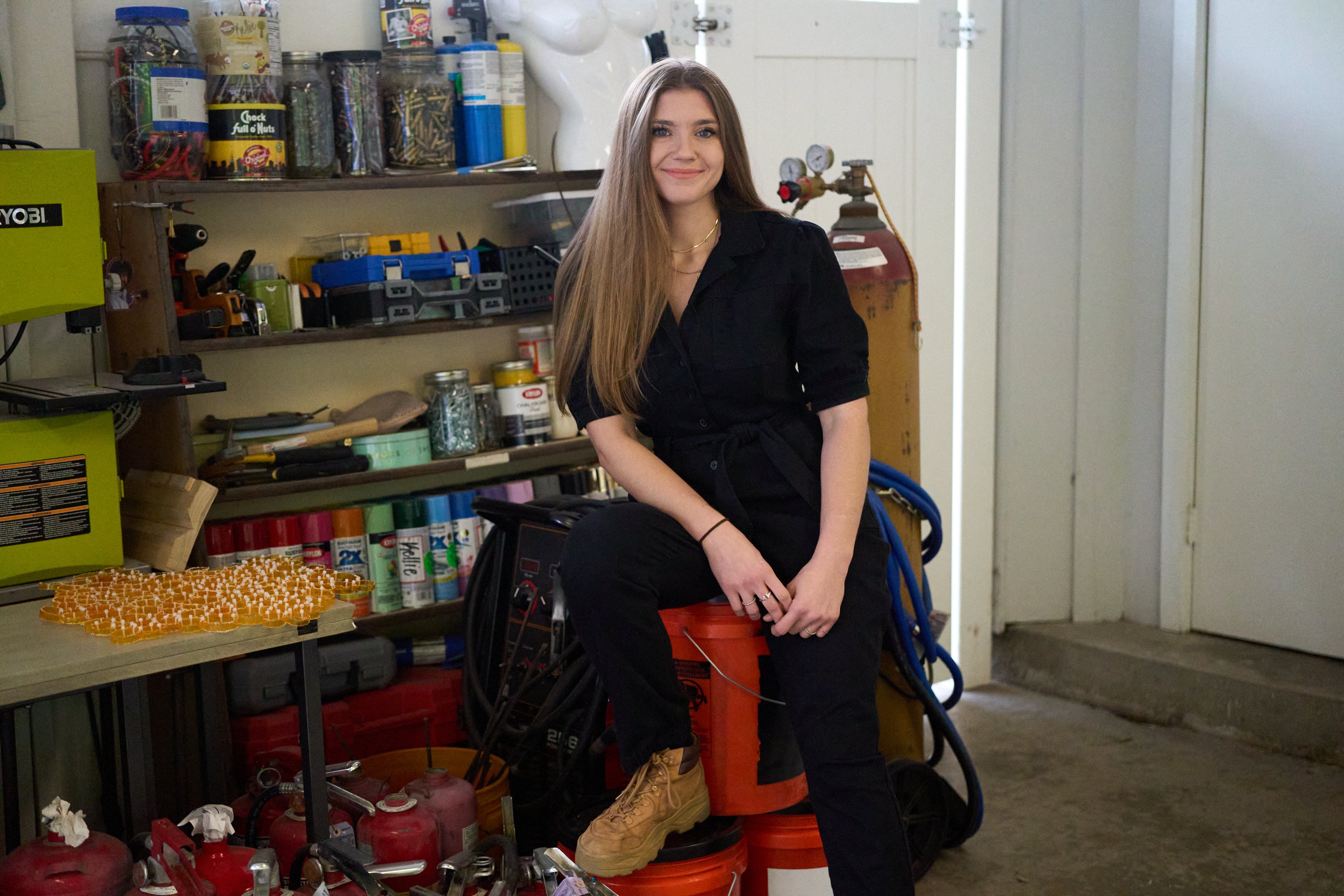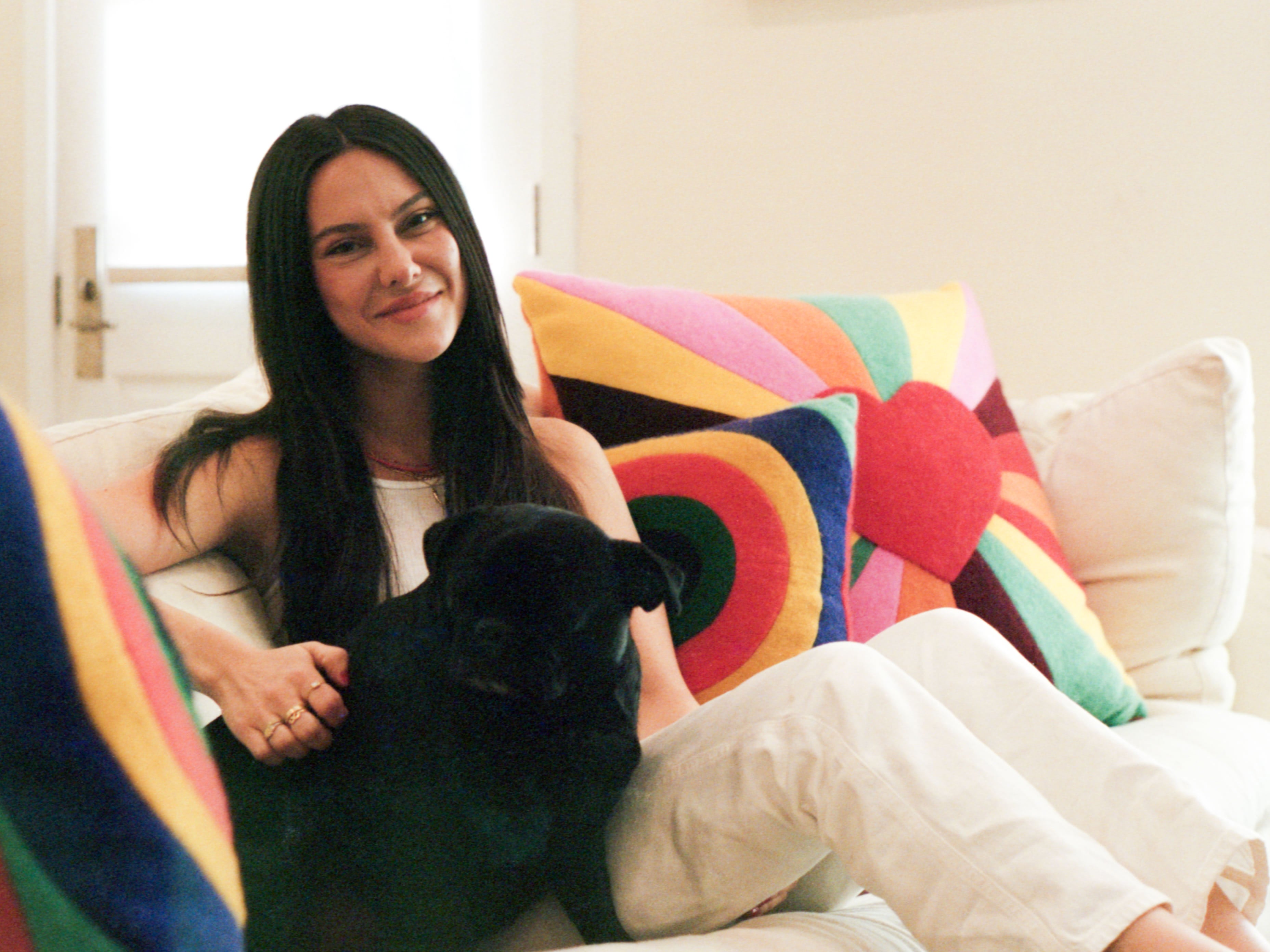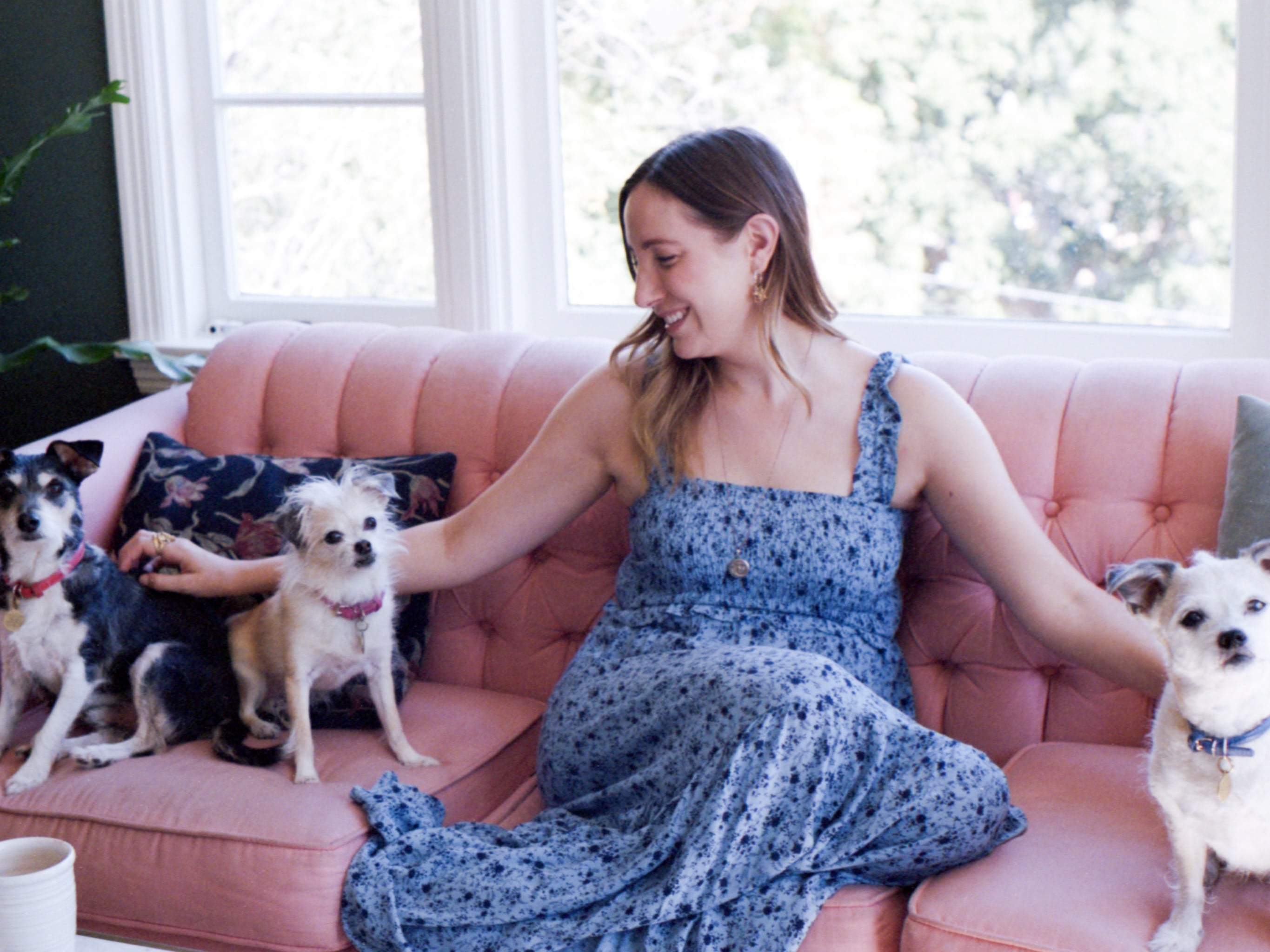Kellie Gillespie on medication for depression, suicide, and, how art saved her life.
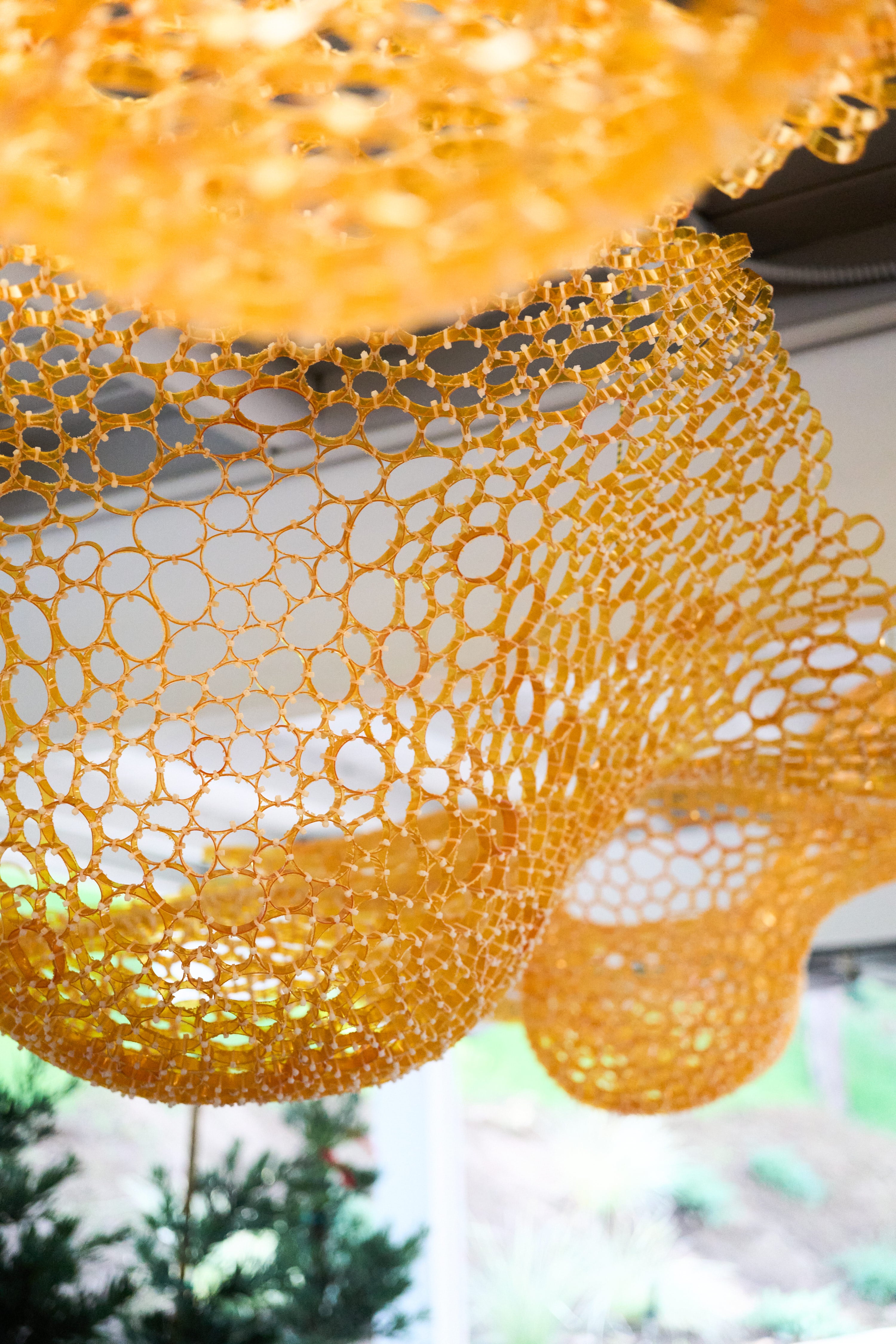
The artist and mental health advocate believes depression medication is like being in a deep, dark hole. Medication isn't something that automatically comes in and saves you. It's a ladder and it's finding the right ladder that allows you to climb out of that hole. Together, Kellie and Jayme discuss what makes her art piece Over/Medicated/Under representational of brain chemistry, how she takes her distinct way of seeing the world and turns it into something beautiful, and how art turned her life around.
What inspired you to create your Over/Medicated/Under piece?
There's a lot of inspiration behind the work. For most artists, it comes from a deeply personal place and expands more into this overwhelming topic that a lot of us deal with. It essentially comes down to the stigma around taking medication.
Right before I made this piece, I had spent an entire year in bed. It was a venture of taking six or seven medications and a lot of trial and error. It was an awful time: a lot of struggle, a lot of pain that I hadn't felt in a long time, side effects, and trial and error. And I know it's a story that a lot of people have experienced. I had gotten to a point where I was done, I was going to throw in the towel. And my doctor pushed me to try one more thing. She had to push me and I decided to try this last medication. If it works, great. If not, I really am done. And, of course, it was the thing that worked.
I was prescribed lithium, which is typically used to treat bipolar disorder, something I wasn't diagnosed with. So it was kind of weird taking it and then figuring out what this mean about me, and then coming to a point of, it doesn't matter. So, the way I see depression medication, in general, is being in this deep, dark hole. When the slides are so slippery, you can't get out. And medication isn't something that automatically comes in and saves you. It's a ladder. It's finding the right ladder that allows you to climb out of the hole yourself. That medication did that for me.
I had this epiphany, and during the course of that year, I started collecting prescription bottles. I knew I wanted to do a piece with them. I had no idea what it was or what the meaning behind it was. But, like most of my work, it relies heavily on the collection, which takes years and years. So I was already collecting those bottles. As people donated their bottles, they started sharing their stories more and more. And so the thing that started as a deeply personal piece and experience became something that was not so much about me but a collective experience. And it became a community-based.
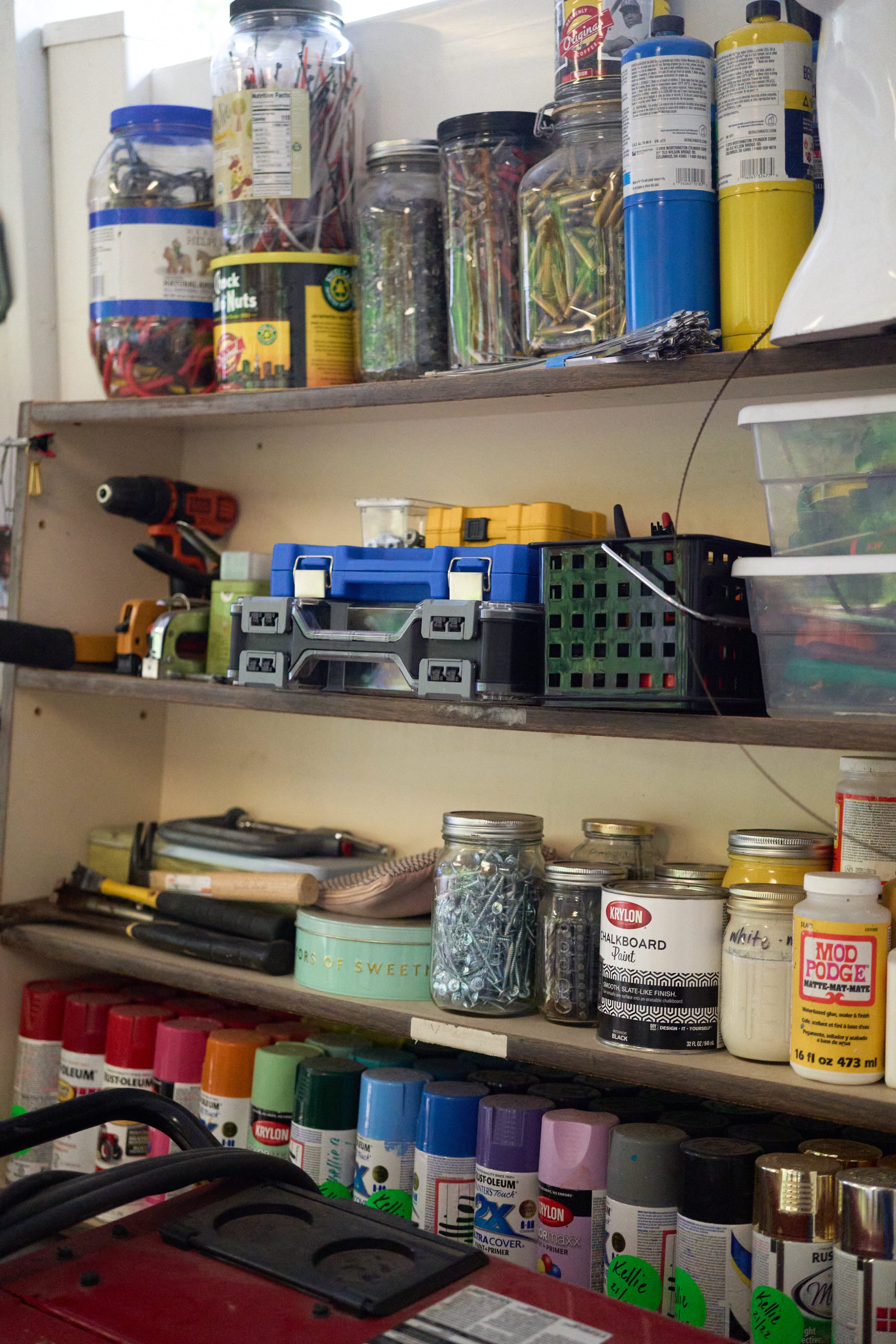
I can relate to finding a medication and starting to feel it's actually working. And I totally agree that it's a ladder. It's something you're working through. But there are other things that have to come with that to actually feel better and to heal. What was your process like for this sculpture? And what was the aha moment of creating this particular shape and vibe?
It took about six months of intense experimentation. I thrive on problem-solving. I began by trying to melt and suture them together, a whole bunch of weird things, and nothing worked. There were hundreds of people asking what are you going to do with the bottles. I cut them into rings and the second I made that first cut I realized it was going to take me forever. I would spend about 16 hours a day in the studio just cutting and tying.
When you look at the zip tie and the ring, it's reminiscent of the Benzene Structure. If you look at dopamine, serotonin, or any chemical structure, it's a hexagon with a whole bunch of molecules around it. So, up close, this piece became representational of brain chemistry. It became indicative of neuro pathways.
I heard you say on Instagram that you like working with discarded objects and people who feel they have been dismissed. Can you share more about that and the symbolism between that and your work?
That's the baseline theme of all my work. This parallel between objects discarded by society and people discarded by society. What I mean by that is working with materials that are mundane, that are everyday, that are considered useless, that you wouldn't look at and think, wow, that's beautiful. Taking that material and transforming it into something beautiful is a change of perspective.
So the whole baseline of my work is what if we looked at people the same way and we saw their limitless potential. If you look at people that are discarded by society, people with mental illness, people with disability, people that struggle with addiction, they're all considered outcasts, and less than, and I believe that those people can make the biggest impact if given the chance.
Not many people thought I was going to amount to much. And when I was dealing with my mental health struggles, I was looked at as a lost cause. I don't want to minimize the people who stuck with me from beginning to end who saw that potential. But for the majority, I wasn't seen as someone who was going to do anything with her life. And I would like to say I'm standing here as a testament to how wrong they were. My mental health history and my struggle with mental illness has been almost my superpower in a way. And that's not to minimize the intensity and the struggle and the pain. But I've been able to take my very distinct, unique way of seeing the world and turn it into something beautiful. I'm very proud of that.
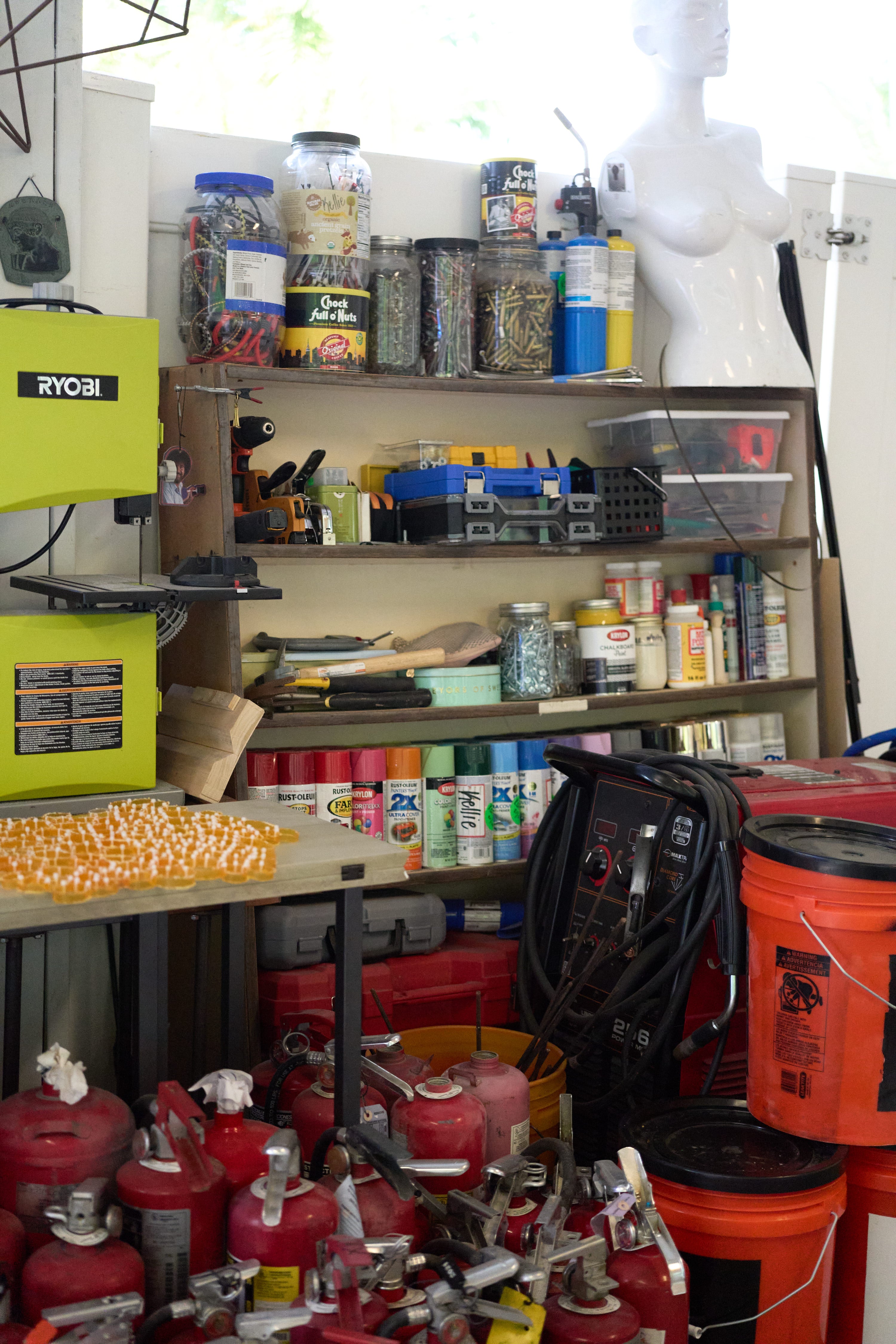
You've been really vulnerable from what I've seen on social media and talking about your suicide attempt. When did you start to feel comfortable to actually speak about that?
I honestly don't know if I have the answer. I have always been an open book in that sense. I've been very vulnerable and honest about all my struggles when I was going through them and afterward. So I don't know if there was ever a point at which I realized I was going to open up. I more had an aha moment of, wow, it's so easy for me to be vulnerable and that makes it so much more important that I am. I continue to be because it's not something that is easy to talk about.
I don't know why I've always been okay shouting it from the rooftops. But because I am comfortable, it's really crucial that I continue to do so. I posted something recently about my previous suicide attempt on World Mental Health Day. When sharing something super vulnerable in a way that I normally haven't, I have to shut my phone off and walk away.
There was a huge virality with that video. How did that feel?
I could not wrap my head around the fact that I made something so many people identified with. It was literally my dream in life. And I still haven't grappled with the fact that I've done that in a way. It definitely had a little bit of disillusionment, but it's been an amazing experience.
How has art saved your life?
There are so many answers to that question. I first discovered art 13 years ago. The precipice of my struggle with mental health hit when I was 16. I ended up having to transfer schools and an all-girls high school. They have a ceramics program, which I had never done before. I'd always been creative as a kid, but I don't know why I ended up taking that class. What I didn't realize was the second that clay was in my hands, it would be the first time I'd feel happiness in over a year. I was beating the hell out of this clay. After a couple of weeks, I realized this was what I was going to do for the rest of my life. And so art really saved me because this was right after I had attempted to take my own life multiple times.
There was a real doubt whether I was going to graduate, let alone live to graduation. So to have this medium to not only use therapeutically for myself, but something I can then use to talk about the stuff I was going through, it changed my life, and it saved me. I don't think I'd still be here if I hadn't found it when I did.
That was the initial moment of art saving my life. But it continues daily. I think about a world in which I didn't go through the struggles I did and it's almost impossible to envision. In a way, it's given meaning in life and purpose and something to be active and advocate for. Art happens to be the medium in which I can do that and it saves me constantly. When I don't have access to a studio, I'm not well. I have to find creative ways of doing art. But I've always done three-dimensional things, things that incorporate my body, that are strenuous, in a sense. As someone who really struggled with self-deprecating behavior, self-harm, eating disorders, and addiction, I have a long history of doing things that hurt myself. The way I do my art is strenuous and torturous. It's repetition. Suddenly, I found a way to scratch that itch, doing something productive that wasn't hurting myself.
What was something really hard that you had to go through that ended up being really valuable?
I am four years, six months, 10 days sober. I keep track of it on a daily basis. I got sober when I was 23 and it was the most difficult thing I've ever done in my life. But also it has been the most amazing thing I've ever done. I don't know what kicked it into gear, but I realized that I had a problem, and I needed to conquer it now. I was at a point where I had gotten into grad school, I was drinking heavily 24/7, and I realized that I worked so hard for a moment that I was about to throw away. So I checked myself into treatment and I went to meetings six days a week for three months straight until the day I left for grad school.
I had to go through a medically assisted detox. The mental stuff I had to tackle were things I had never dealt with. There was a lot of stuff I had to confront. Once I got through the initial few months, I was happier and healthier than I've ever been. I don't think I could have done this or a lot of my pieces had I still been under the influence. It was the most rewarding experience and the community I got from it was amazing.
